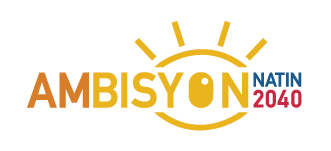Energy Undersecretary Donato D. Marcos (The Manila Times)
THE Philippines has always viewed nuclear energy as a long-term option for power generation that will provide supply security, stability and reliability. Should this be the path that the country chooses to take, nuclear energy will further diversify our existing generation mix composed of coal, natural gas, geothermal, hydropower, oil, wind, biomass and solar.
Owing to its baseload characteristics, nuclear energy will be able to support the thrust of the Philippine government which is the realization of the Philippine Development Plan’s (PDP) drive for industrialization and urbanization. It is central for a country on the path of development to have the available and required capacity to meet the nation’s increasing energy requirements.
Nuclear energy’s pivotal role in augmenting supply will also aid in accomplishing Ambisyon Natin 2040, the government’s long-term vision for the country that highlights the aspirations, values and principles of the Filipino people. This vision for the country is this: By 2040, the Philippines shall be a prosperous, predominantly middle-class society where no one is poor. Our people will enjoy long and healthy lives, are smart and innovative, and will live in a high-trust society.
Our nation is also privileged to have a President who has strong political will, which is a decisive factor if a country is to embark on a nuclear power program.
Discussions on nuclear energy as well as radioactive sources tend to attract issues on security. We are cognizant of this and must admit that this issue cannot be discounted as people and the environment must always be protected. Security and physical protection is just one of the 19 infrastructure issues identified by the International Atomic and Energy Agency (IAEA) for countries pursuing nuclear power development. When we talk of radioactive sources, there is emphasis on security. There must be a security culture in practice and a security system well in place. As the IAEA defines the concept, a dynamic and effective security culture should exist at all levels of the operator’s staff and management. According to the IAEA, the operator’s security professionals should design a security system to deter any potential adversary from committing a malicious act or to minimize through detection, delay and response the likelihood of an adversary succeeding in completing such a malicious act. More importantly, the security system must be able to present the basic security functions – deterrence, detection, delay, response and security management.
Our participation here today indicates that we value regional and international cooperation on nuclear and radioactive materials security. And the most effective way for us to learn is to hear about the experiences of our Asean member states and from the experts.
(The article is from the opening remarks delivered at the “Seminar on Security Radioactive Sources” held at the Sofitel Philippine Plaza Hotel on April 17, 2017. The seminar was the first associated activity to be hosted by the Department of Energy in connection with the Philippines’ hosting this year of the Association of Southeast Asian Nations annual meetings. Marcos is the chairman of the recently formed Nuclear Energy Program Implementing Office [NEPIO] of the energy department.)
